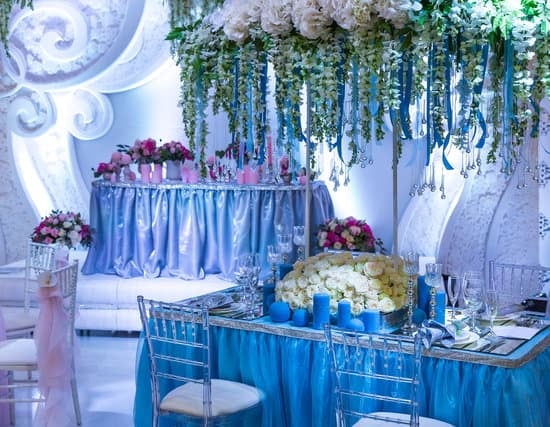A wedding ceremony is a momentous occasion that signifies the union of two individuals in love, surrounded by family and friends. However, amidst the joy and celebration, there is always the potential for drama. This raises the question: what happens if someone objects at a wedding? The tradition of objecting at weddings has been a part of historical ceremonies, and while it may seem outdated, it still holds legal and emotional significance in modern times.
Traditionally, objections at weddings were seen as a way to prevent unlawful marriages or ensure that the couple was entering into matrimony willingly. While this tradition may not carry the same weight in modern ceremonies, it is essential to understand its historical context and legal implications. From addressing the responsibilities of the officiant and the couple to examining potential reasons for objections and their emotional impact, handling objections at weddings requires careful consideration.
In this article, we will delve into the significance of wedding ceremonies and set the stage for understanding the potential drama of someone objecting. We will explore the historical context of objection traditions, highlight their role in traditional weddings, discuss legal implications, examine reasons for objections, how they are handled in modern ceremonies, their emotional impact, and dispel common myths surrounding objections at weddings.
So let’s dive into this complex yet intriguing topic to gain insights on handling objections effectively.
The Tradition of Objection in Weddings
Historical Context
The history of objections at weddings can be traced back to various cultures and traditions around the world. In medieval Europe, for example, objections were seen as a way to ensure that the marriage was not based on coercion or deceit. In some Native American cultures, objections were a way for family members to publicly voice any concerns about the union. Understanding the historical context of this tradition can provide insight into its significance and role in traditional wedding ceremonies.
Role in Traditional Wedding Ceremonies
In traditional wedding ceremonies, the moment of objection serves as a solemn and serious part of the proceedings. It highlights the importance of community involvement and validation in the marriage ritual. While objections are rare in modern weddings, understanding their historical role can shed light on their significance and meaning within different cultural and religious contexts.
Overall, while objections at weddings may seem outdated or unnecessary in modern times, understanding their historical significance can provide valuable insights into the cultural and social dynamics surrounding marriage ceremonies. It’s important to recognize that while objections are now rare occurrences, they continue to hold a place in traditional wedding customs around the world.
Legal Implications
When it comes to the legal implications of someone objecting at a wedding, there are certain responsibilities and procedures that must be followed. In many jurisdictions, the presence of an objection during the ceremony requires the officiant to pause the proceedings and address the concern. This is not only a traditional practice but also has legal ramifications that need to be considered.
In terms of legal responsibilities, the officiant is typically required to investigate the objection before continuing with the marriage ceremony. This may involve speaking privately with the individual who raised the objection or even conducting a brief inquiry into the validity of the concern. Ultimately, it is up to the officiant to determine whether the objection warrants halting the wedding.
From a legal standpoint, if an objection is deemed valid and substantial by the officiant, they have a responsibility to postpone or even halt the wedding ceremony. It is important for couples to understand that this process is in place to ensure that marriages are entered into willingly and without any legal impediments.
In modern weddings, these legal implications are still relevant, although objections are much rarer than they were in more traditional ceremonies. In most cases, objections at modern weddings are handled discreetly and swiftly by officiants who are well-versed in navigating these situations while ensuring that couples can proceed with their special day without unnecessary interruption.
Reasons for Objections
When it comes to objections at weddings, there are various reasons why someone might feel compelled to speak out. While objections are relatively rare in modern weddings, understanding the potential reasons behind them can shed light on the emotional and relational dynamics at play during such a significant event. Here are some potential reasons why someone might object at a wedding:
- Personal or unresolved conflicts: The objector may have personal issues with one or both individuals getting married, such as past romantic involvement or unresolved conflicts.
- Miscommunication or misunderstanding: In some cases, an objection may stem from miscommunication or misunderstanding about the nature of the relationship or the intentions of one or both parties.
- Concern for the well-being of the couple: The objector may genuinely believe that the marriage is not in the best interest of one or both individuals, and feels compelled to voice their concern.
It’s important to recognize that these reasons for objections are complex and deeply personal. When navigating objections at a wedding, it’s essential to approach the situation with empathy and understanding, while also upholding the significance of the ceremony for the couple.
In many cases, these reasons for objections can lead to heightened emotions and potential conflict within families and social circles. This is why it’s crucial for couples and officiants to be prepared to handle any objections with grace and poise, ensuring that all parties involved feel heard and respected.
It’s also worth acknowledging that in some instances, an objection may simply be rooted in tradition or customs that hold different significance for different individuals. Understanding these potential reasons can help couples and officiants navigate objections in a way that promotes harmony and understanding within a momentous occasion.
Handling Objections in Modern Weddings
Evolution of Tradition
In modern weddings, the tradition of objecting has evolved significantly from its historical context. While objections were once rooted in cultural and legal implications, modern ceremonies have shifted towards a more inclusive and respectful approach. Rather than being seen as a dramatic or disruptive element, objections are now viewed as an opportunity to address any concerns that may exist within the community or the couple’s relationship.
Legal and Emotional Considerations
From a legal perspective, objections at weddings are typically handled delicately by the officiant. It is important for the couple to understand their rights and responsibilities in such situations, as well as for the officiant to guide the process effectively. Emotionally, handling objections in modern weddings requires sensitivity and understanding. The impact of an objection can be significant on both the couple and their families, making it crucial to navigate the situation with empathy and professionalism.
Shifting Attitudes
Modern weddings reflect shifting attitudes towards objections, with many couples opting to openly address this tradition during their ceremony. Some choose to incorporate statements about mutual consent and support from their community, reaffirming their commitment despite any potential objections. This proactive approach not only acknowledges the tradition but also emphasizes unity and respect within the wedding ceremony.
Overall, navigating objections in modern weddings involves a balance of tradition and contemporary values. By understanding the historical context, legal implications, emotional impact, and shifting attitudes towards objections, couples and officiants can effectively handle this aspect of the ceremony with grace and respect.
Emotional Impact
When someone objects at a wedding, it can have a significant emotional impact on the couple and their families. The moment of objection is often one of the most pivotal and emotionally charged moments in the entire ceremony. For the couple, it can be a moment of shock, confusion, and distress.
They may feel like their special day has been disrupted and tainted by the objection. The emotional toll of such an event can cast a shadow over what should be a joyous occasion.
For the families of the couple, witnessing an objection can also be incredibly emotional. They may feel protective of their loved ones and outraged that someone would try to disrupt such a sacred event. This can lead to heated emotions and potential conflict within the wedding party.
Furthermore, the person making the objection may also experience intense emotions. Whether it is due to genuine concern for the couple or personal grievances, they are likely to feel anxious or stressed about their decision to speak up during the ceremony. This emotional impact highlights just how crucial it is for couples and officiants to handle objections with sensitivity and care.
Mythbusting Objections at Weddings
In modern times, the tradition of objecting at a wedding has become increasingly rare. While it may have played a significant role in traditional wedding ceremonies, many couples today choose to omit this part of the ceremony. However, if someone does decide to object at a wedding, it is important to understand the legal and emotional implications of such an action.
Legally, an objection at a wedding can have consequences depending on the jurisdiction. In some places, the officiant is required to pause the ceremony and investigate the objection before proceeding. This is to ensure that there are no legal impediments to the marriage taking place.
It is also important for couples to consider their own feelings and emotions if someone were to object at their wedding. The emotional impact of such an event can be significant and should not be overlooked.
Despite its rarity, objections at weddings can still occur for various reasons. It could be due to personal issues between individuals or genuine concerns about the couple’s relationship. Regardless of the reason, handling objections in a respectful and dignified manner is crucial for all parties involved. Couples and officiants should be prepared to address any objections calmly and professionally.
Moreover, there are several common misconceptions and myths surrounding objections at weddings that need to be addressed. By providing clarity on the actual procedure and consequences of objections at weddings, it can help dispel any unnecessary fears or misunderstandings about this aspect of the ceremony.
| Topic | Description |
|---|---|
| Legal Implications | In some jurisdictions, officiants are required to investigate objections before proceeding with the ceremony |
| Emotional impact | The emotional impact of objections at weddings should not be overlooked by couples and officiants |
| Misconceptions | Addressing common myths about objections at weddings can help dispel unnecessary fears or misunderstandings |
Conclusion
In conclusion, the tradition of someone objecting at a wedding holds a significant historical and cultural context, but in modern times, it has become increasingly rare. The legal implications of such an objection vary depending on the jurisdiction and can range from halting the ceremony temporarily to invalidating the marriage entirely. However, with the changing attitudes towards objections at weddings, many couples and officiants are better equipped to handle any potential disruptions.
While it is important to acknowledge the emotional impact of someone objecting at a wedding, it is equally crucial to dispel any myths and misconceptions surrounding this issue. By understanding the actual procedure and consequences of objections at weddings, couples and officiants can approach the situation with clarity and composure.
In today’s society, objections at weddings are extremely uncommon, but if they do occur, it is essential for those involved to approach the situation with empathy and understanding. By being prepared for any eventuality, whether emotional or legal, couples and officiants can ensure that their special day remains a joyous occasion despite any potential disruptions.
Frequently Asked Questions
What Happens When Someone Says I Object at a Wedding?
When someone says “I object” at a wedding, it typically signifies that they have an important reason why the marriage should not take place. This tradition dates back to when marriage was more of a legal contract than a romantic union.
Do You Have to Cancel the Wedding if Someone Objects?
It is not necessary to cancel the wedding if someone objects. The objection will prompt the officiant to pause the ceremony and address the concern raised by the individual. If it cannot be resolved, then a decision about whether or not to proceed with the wedding will be made.
Why Do They Say Speak Now or Forever Hold Your Peace?
The phrase “speak now or forever hold your peace” is often included in traditional wedding ceremonies as a moment for anyone who may have valid reasons why the couple should not marry to voice their concerns before it’s too late. It serves as an opportunity for anyone with pertinent information to come forward before the marriage is finalized.

I have been involved in marriages for over 20 years helping couples and singles understand more about them.





